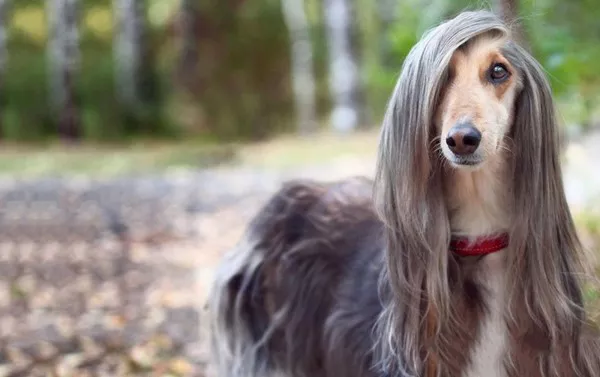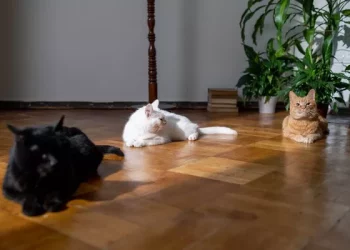The Devon Rex cat is known for its unique appearance, playful personality, and affectionate nature. With its short, curly coat and large ears, the Devon Rex has become a favorite among cat lovers. However, one common concern for potential owners is shedding. Many pet owners want to know how much grooming their new pet will require and how much fur they can expect to find around their home. In this article, we will explore the shedding habits of Devon Rex cats, their grooming needs, and provide tips for managing shedding effectively.
Understanding Shedding in Cats
Before delving into the specifics of the Devon Rex, it is essential to understand shedding in cats in general. Shedding is a natural process through which cats lose old or damaged hair. It can be influenced by various factors, including breed, age, health, and environmental conditions.
Factors Affecting Shedding
Breed: Different cat breeds have different shedding patterns. For example, long-haired breeds like the Persian or Maine Coon tend to shed more than short-haired breeds like the Siamese.
Age: Kittens typically shed less than adult cats. As cats age, their shedding patterns may change.
Health: Cats with underlying health issues may shed more than healthy cats. Conditions like allergies, parasites, and hormonal imbalances can lead to increased shedding.
Season: Many cats experience seasonal shedding, particularly during spring and fall. This phenomenon is tied to changes in daylight and temperature.
Diet: A balanced diet rich in essential nutrients can affect a cat’s coat health and shedding patterns. Cats that are poorly nourished may experience excessive shedding.
The Devon Rex Cat: An Overview
Breed Characteristics
The Devon Rex is a distinct breed characterized by its short, curly coat, which is the result of a natural mutation. This breed originated in Devonshire, England, in the 1960s and has since become popular for its playful demeanor and social nature. Some key features of the Devon Rex include:
Curly Coat: The coat is short, soft, and has a unique texture due to its curls.
Large Ears: Devon Rex cats have large, bat-like ears that give them an alert expression.
Expressive Face: Their facial features are prominent, with high cheekbones and a short muzzle.
Compact Body: Devon Rex cats are medium-sized with a slender build, making them agile and playful.
Temperament
Devon Rex cats are known for their affectionate and friendly personalities. They thrive on human interaction and often follow their owners around the house. This breed is also known for its intelligence and playful nature, making it an excellent choice for families and individuals alike.
Shedding in Devon Rex Cats
Now that we have a general understanding of shedding and the Devon Rex breed, let’s focus on the shedding habits specific to Devon Rex cats.
Shedding Levels
One of the most appealing traits of the Devon Rex is its minimal shedding compared to many other cat breeds. Despite their unique curly coat, Devon Rex cats are known to shed less fur overall. This is due to the structure of their hair:
Short Hair: The Devon Rex has short hair, which means there is less surface area for shedding compared to long-haired breeds.
Curly Hair: The curly texture of their coat helps to trap loose hair, reducing the amount that falls onto furniture and floors.
Fur Density: While the Devon Rex has fewer hairs overall, those that they do have are often finer and softer, leading to less noticeable shedding.
Seasonal Shedding
Devon Rex cats may experience seasonal shedding, particularly during the spring and fall. During these times, they may shed more as they transition between their winter and summer coats. However, compared to other breeds, the amount of fur lost is still minimal.
Grooming Needs of the Devon Rex
Even though Devon Rex cats shed less, they still require regular grooming to keep their coat healthy and to minimize any loose hair. Here are some essential grooming practices for Devon Rex owners:
Brushing
Regular brushing helps to remove loose hair and prevent matting, especially since their curly coat can trap dirt and debris. Here are some tips for brushing a Devon Rex:
Use the Right Tools: A soft-bristled brush or a rubber grooming mitt works well for the Devon Rex. Avoid stiff brushes, as they may irritate the cat’s skin.
Frequency: Brushing once a week is usually sufficient to keep their coat in good condition. During seasonal shedding periods, you may want to increase the frequency to twice a week.
Technique: Be gentle when brushing, and focus on the areas where loose hair tends to accumulate, such as around the neck and behind the ears.
Bathing
Although cats are known for their grooming habits, Devon Rex cats may benefit from occasional baths due to their unique coat. Bathing helps remove excess oils and dirt that can accumulate in their curly fur.
Frequency: Bathing every 4 to 6 weeks is generally sufficient for a Devon Rex. However, if your cat gets particularly dirty or has been outside, you may need to bathe them more frequently.
Shampoo Selection: Use a mild, cat-specific shampoo that is free of harsh chemicals. Avoid using human shampoo, as it can irritate their skin.
Drying: After bathing, gently towel dry your cat and use a hairdryer on a low setting if your cat tolerates it. Ensure the dryer is not too hot, and keep it at a safe distance from the skin.
Ear Care
The large ears of the Devon Rex can accumulate wax and debris, requiring regular cleaning. Here are some tips for ear care:
Inspection: Check your cat’s ears weekly for dirt or wax buildup.
Cleaning: Use a damp cotton ball or a veterinarian-approved ear cleaner to gently wipe the inside of the ear. Avoid using cotton swabs, as they can push debris further into the ear canal.
Nail Trimming
Regular nail trimming is essential for all cats, including the Devon Rex.
Frequency: Trim your cat’s nails every 2 to 4 weeks, depending on how quickly they grow.
Tools: Use cat-specific nail clippers or a grinder designed for pets.
Technique: Be cautious to avoid cutting the quick, which can cause pain and bleeding. If you’re unsure, consult your veterinarian or a professional groomer for guidance.
Health Factors Influencing Shedding
While the Devon Rex is generally a healthy breed, certain health conditions can influence shedding. Here are some common issues to be aware of:
Allergies
Allergies can lead to increased shedding in cats. Common allergens include pollen, dust mites, mold, and certain food ingredients. If your Devon Rex is excessively shedding or has bald patches, it may be worth discussing potential allergies with your veterinarian.
Skin Conditions
Skin conditions such as dermatitis or infections can lead to increased shedding. Signs of skin issues include redness, itching, or abnormal hair loss. Regular veterinary check-ups can help identify and address these problems early on.
Hormonal Imbalances
Hormonal changes can affect shedding in cats. Conditions like hyperthyroidism or Cushing’s disease may lead to increased hair loss. If you notice significant changes in your cat’s shedding patterns, consult your veterinarian for evaluation.
Managing Shedding in Your Home
Even though Devon Rex cats shed less, it’s still essential to manage the fur in your home. Here are some practical tips:
Regular Cleaning
Vacuuming: Invest in a good quality vacuum cleaner with a HEPA filter to help capture pet hair and dander effectively. Vacuum carpets, rugs, and upholstery regularly to minimize fur buildup.
Lint Rollers: Keep lint rollers handy to quickly remove hair from clothing and furniture.
Wash Bedding: Regularly wash your cat’s bedding, blankets, and any fabric items they frequently use to reduce allergens and hair accumulation.
Air Purification
Consider using an air purifier with a HEPA filter to help remove pet dander and hair from the air, improving indoor air quality. This is particularly beneficial for allergy sufferers.
Designated Spaces
Create designated spaces for your Devon Rex, including specific areas for eating, sleeping, and playing. This can help contain shedding to certain areas of your home, making cleanup easier.
Conclusion
In summary, the Devon Rex cat is a unique breed known for its minimal shedding, making it an excellent choice for individuals or families concerned about pet hair in their homes. While they do shed less compared to other breeds, regular grooming and care are still necessary to maintain their coat health and manage shedding effectively. By understanding the shedding habits of the Devon Rex and implementing proper grooming and cleaning practices, you can enjoy a happy, healthy, and low-shedding companion in your home.
Related Topics:





















